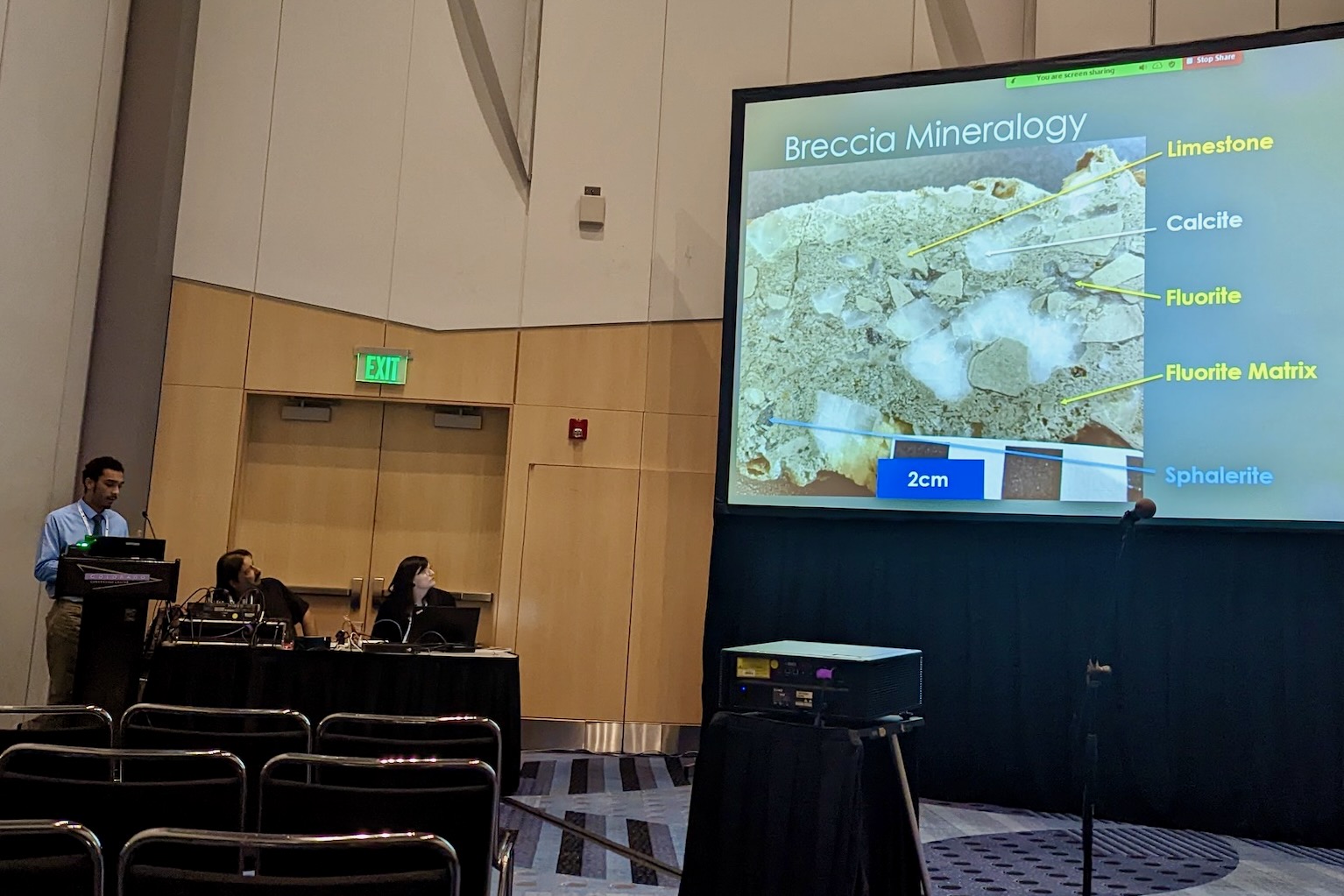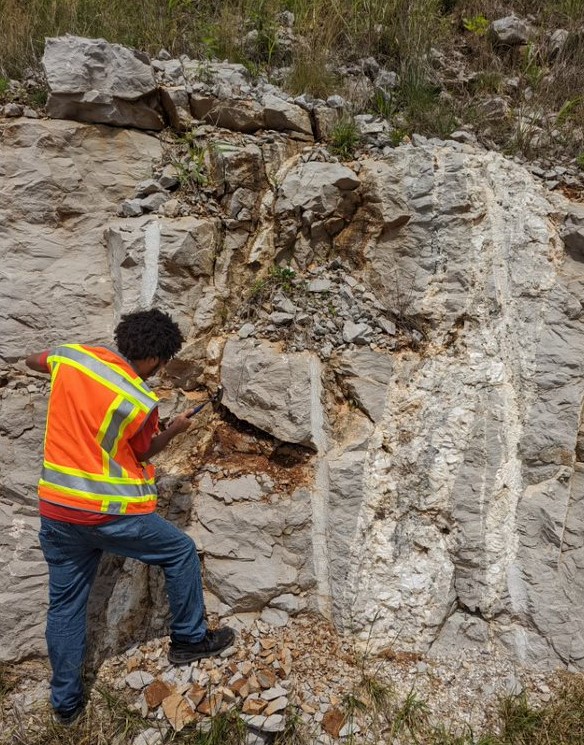Presenting at national geology conference opens opportunities for Austin Peay student
(Posted on Monday, Nov. 21, 2022)

A recent string of opportunities led an Austin Peay State University geosciences student to present at a national conference.
Dairian Boddy, a junior in the Department of Geosciences, presented research about an out-of-place rock deposit near Russellville, Kentucky, last month at the Geological Society of America annual meeting in Denver, Colorado.
“It was the best thing ever,” Boddy said. “I was nervous, but I rehearsed it. I didn’t take note cards … I didn’t take anything. I didn’t want to take away from the experience.
“This experience opened up my eyes that there’s just so much more that I want to learn,” he added.
Boddy’s presentation – “Mineralogy and Radiogenic Isotopes of a Newly Identified Zinc Vein near Russellville, Kentucky” – centered on research he did under the tutelage of Dr. Erik Haroldson at Austin Peay State University with the help of Aaron M. Satkoski at the University of Texas at Austin.
And, according to Haroldson, Boddy aced the presentation.
“After Dairian’s talk, the convener congratulated him on an excellent talk and the very interesting project he worked on,” Haroldson said.
Opportunity rocks
Last fall, Haroldson invited Boddy to help with some of the research he’d been working on.
“They’re called Mississippi Valley-type deposits, and at the time, I learned about how to work with the equipment and got a very loose understanding of what they were,” Boddy said. “But then over the summer, I got invested in working on this research.”
Boddy and Haroldson traveled around Tennessee, mostly in West Tennessee and a bit in southwestern Kentucky.
As they drove on a relatively new bypass near Russellville, Kentucky, they spotted an interesting vein of minerals in exposed rock along the roadside.
“We were driving and talking, and we saw it, this big blob of white stuff,” Boddy said. “Dr. Haroldson lit up like it was a goldmine. This is stuff that he’d been researching. He looked like a kid in a candy shop. I’ve never seen him react like this.”
Boddy and Haroldson spent much of the summer researching the vein, taking samples back to Austin Peay for further research. They also took finely cut samples to examine under a scanning electron microscope at the University of Texas in Austin, Texas.
Their goals were to determine the age of the minerals to compare those to Mississippi Valley-type deposits in Tennessee and Kentucky and to determine the uniqueness of the vein from others in the area.
“After looking at all of our data we had before finding this vein, we realized that it shouldn’t have been there,” Boddy said. “We wanted to learn more about it, and I think we’ve opened up the doors for other people to look at this.”
What’s next?
Boddy wants to pursue graduate degrees in geosciences. He entered college wanting to become a meteorologist “because I’m interested in natural disasters – tornadoes, hurricanes, but disasters also include volcanic activity and earthquakes.”
But he hasn’t settled on what path he’ll take in his academic and professional careers.
“Before I went to the GSA in Colorado, I was interested in volcanology, dealing with volcanoes,” he said. “But now that I went to the conference, what I want to do is work more with geochemistry, the chemistry that leads to the creation of minerals.
“I want to be a jack of all trades,” he added. “I want to learn everything because everything is so interesting.”
News Feed
View All News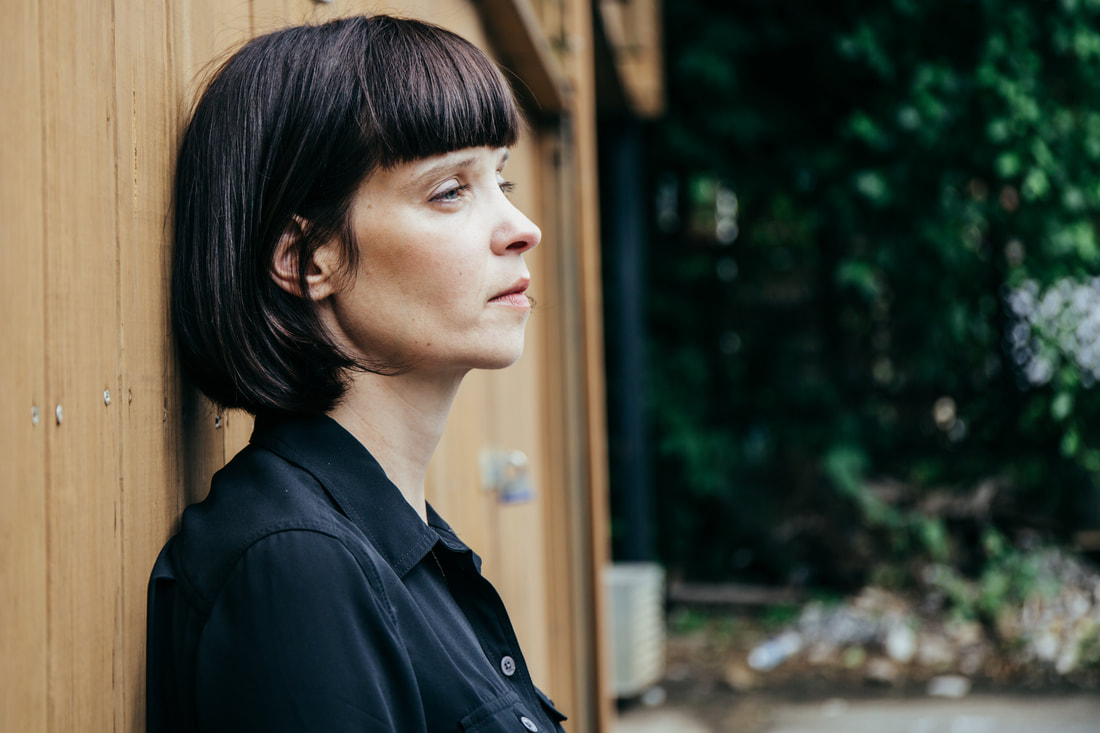
Austin Peay State University's Zone 3 Press, with support from the Center of Excellence for the Creative Arts, is hosting NEA Creative Writing Fellowship recipient and award-winning writer Toni Jensen for a free public reading and book signing at 7 p.m. on Thursday, Feb. 19, in Art + Design Room 120.
Read More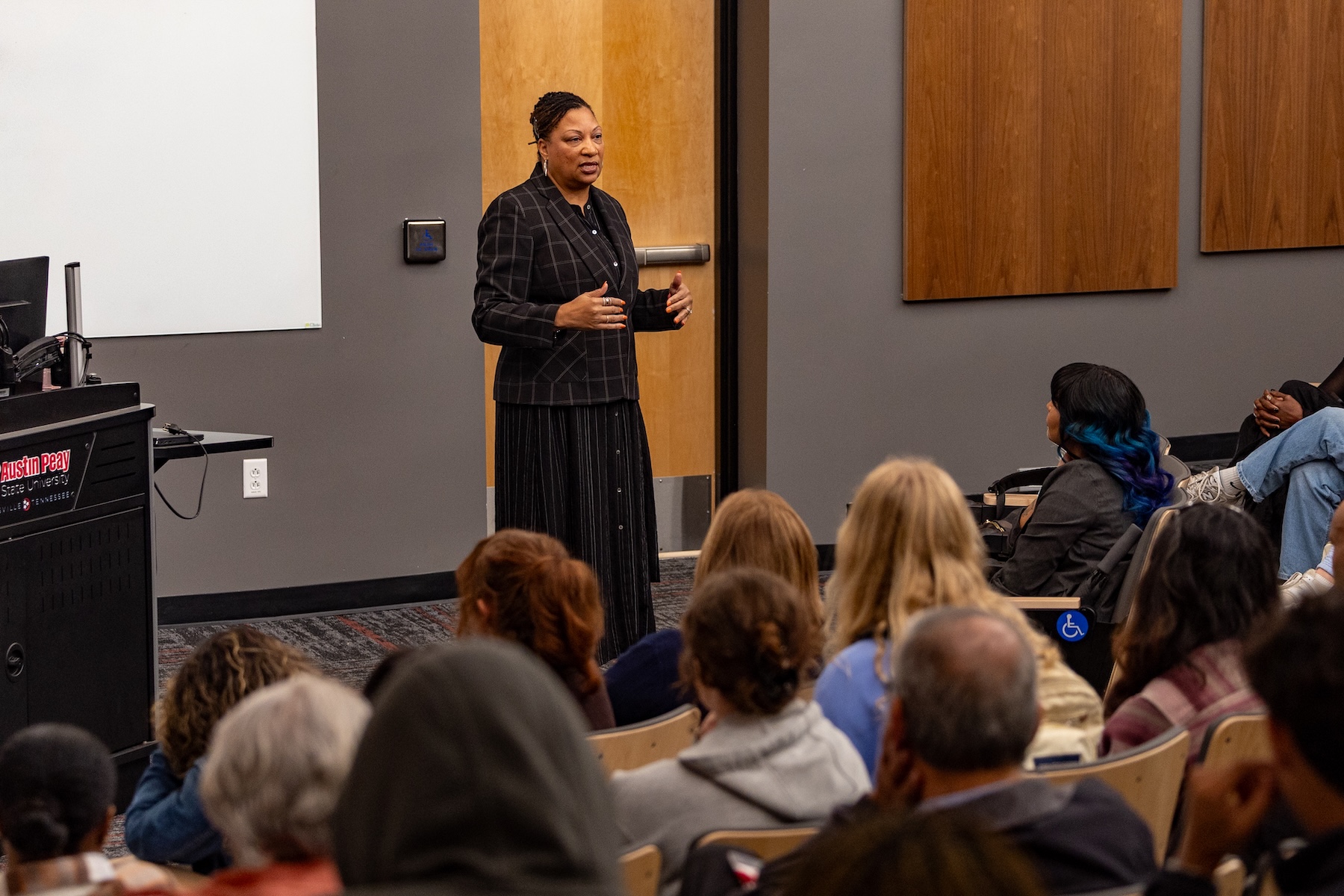
David Hogan of Ribbon Communications and David "Buck" Dellinger of the Clarksville-Montgomery County Economic Development Council (EDC) will share their real-world perspectives on leadership, innovation, and career development during this semester's speaker series.
Read More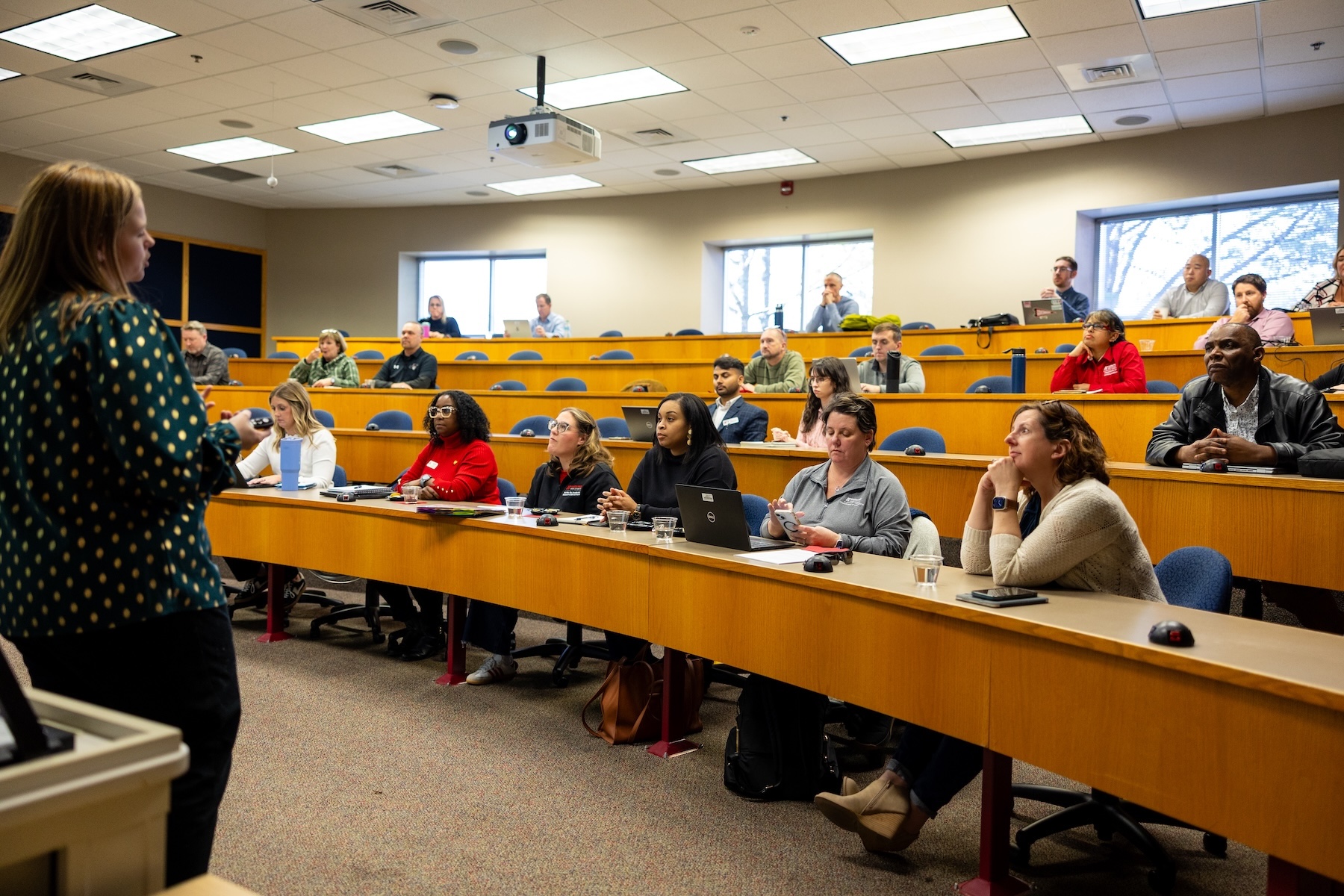
Title III grant funding recently allowed 16 faculty members from across campus to participate in the Career Readiness Academy, an extended workshop series focused on labor market tools, curriculum development, and National Association of Colleges and Employers (NACE) competencies.
Read More